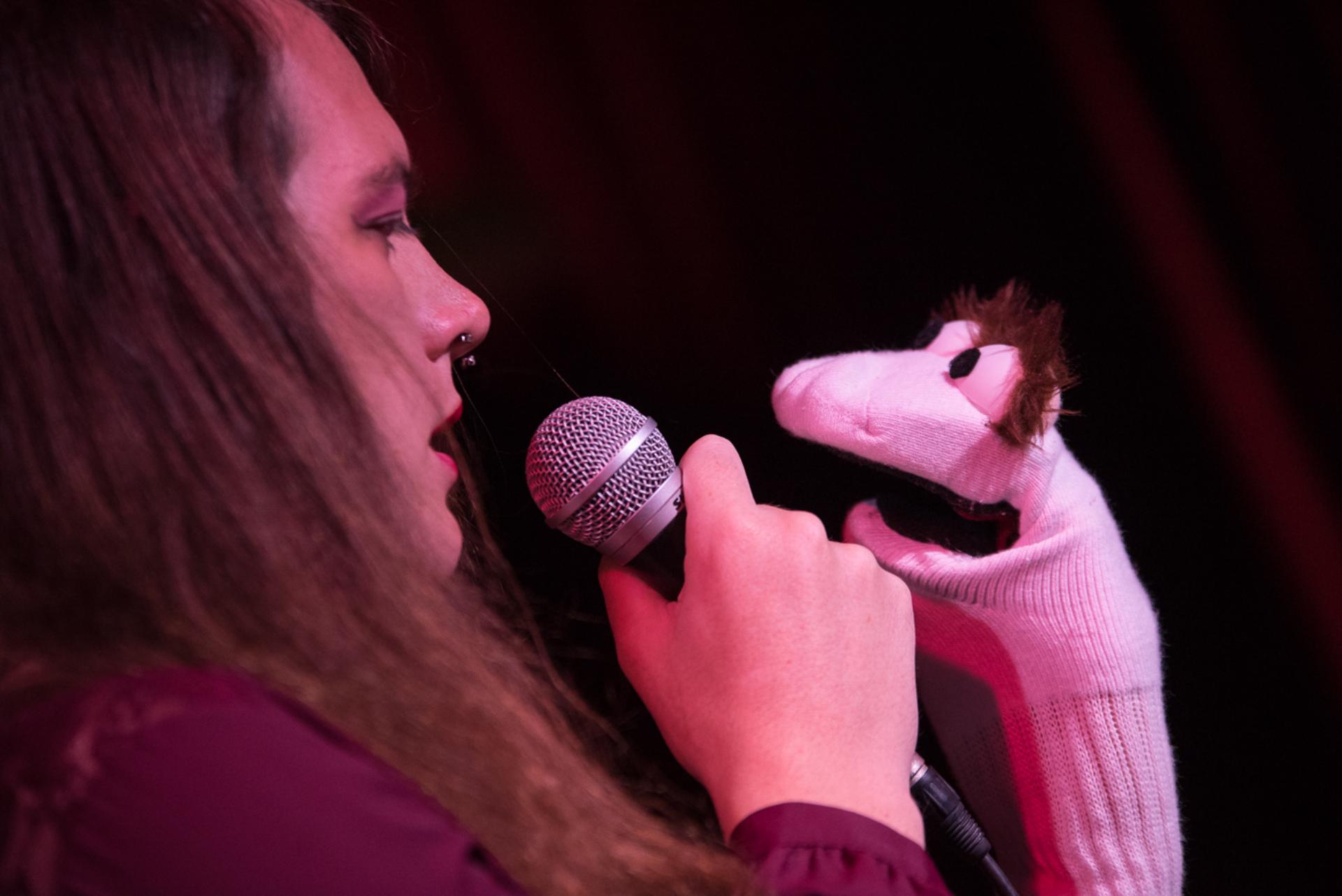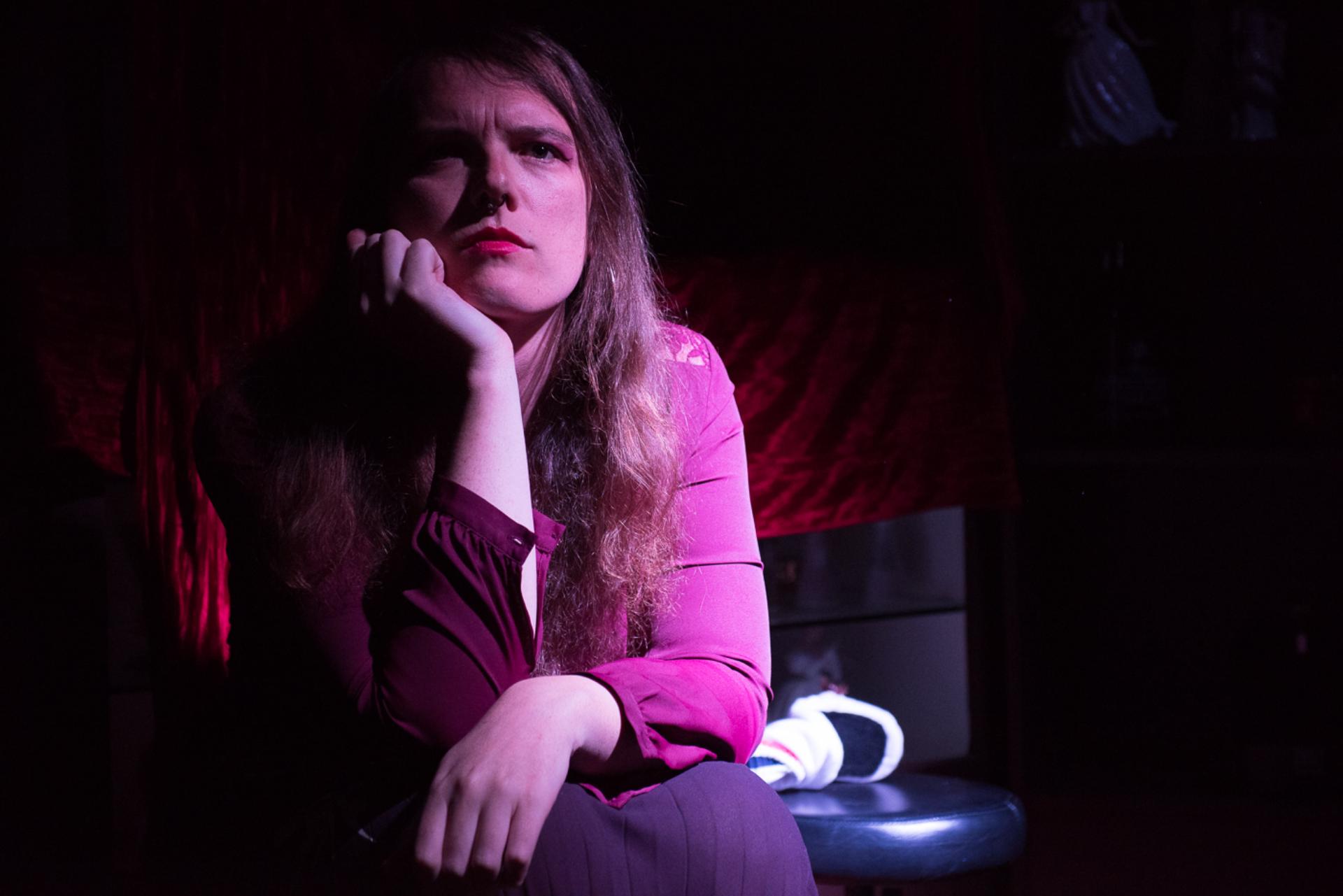













Venue: Old Fitzroy Theatre (Woolloomooloo NSW), Jun 11 – 16, 2024
Playwright: Sheanna Parker Russon
Music: Lillian M. Hearne
Director: Cassie Hamilton
Cast: Sheanna Parker Russon, Lillian M. Hearne
Images by Jamie James
Theatre review
Having transitioned fairly recently to living as a woman, Sheanna Parker Russon is coming to terms with some of the more practical shifts in the way she has to navigate her day to day. In No Love Songs for Lady Basses, Parker Russon talks about the lack of songs appropriate and available to her lower vocal register, in a world that is so resolutely gendered and binary. She discovers that trying to match her own conceptions of womanhood, with what is considered normative, is proving to be a highly challenging process. This of course, extends beyond the context of singing, and it is with these realisations, that Parker Russon begins to question how a woman can determine for herself, the parameters of gender, which is itself a construct that any individual has to constantly negotiate, with their respective environments.
This discussion of what happens internally and externally, when a person is transgender, is managed thoughtfully in collaboration with Cassie Hamilton, who as director of the show brings an excellent sense of variety, to the tones, textures and sensibilities being rendered. There may seem a greater emphasis on comedy than is necessary, but the artists’ ideas are always presented with admirable salience.
Live accompaniment by musicians Aisling Bermingham and Lillian M. Hearne, provides energy and an enjoyable polish to the staging. Songs by Hearne and Parker Russon are replete with charming wit, offering valuable counterbalance to the more earnest spoken sections. Lighting design by Hana Truban is noteworthy for its accurate calibrations of atmosphere, along with the visual interest it delivers for the experience.
There is a profound authenticity to Parker Russon’s performance, of what one assumes is her autobiography. In embracing her womanhood, she quickly discovers the trouble with gender, that however a person tries, it is almost always an imperfect endeavour. We know that although gender can be affirming and gratifying, it is also an apparatus by which control is exerted. Oppressive systems have long relied upon our adherence to those norms, and on our acceptance of those corresponding hierarchies, for their machinations to prevail. This can only mean that although gender is hitherto ubiquitous and indomitable, we should regard it with irreverence and subversiveness, and always be at the ready to dismantle and redefine it, if only to remind ourselves, that much as we cannot help investing into it, gender is ultimately meaningless.
www.oldfitztheatre.com.au | www.instagram.com/transtheatrecollective